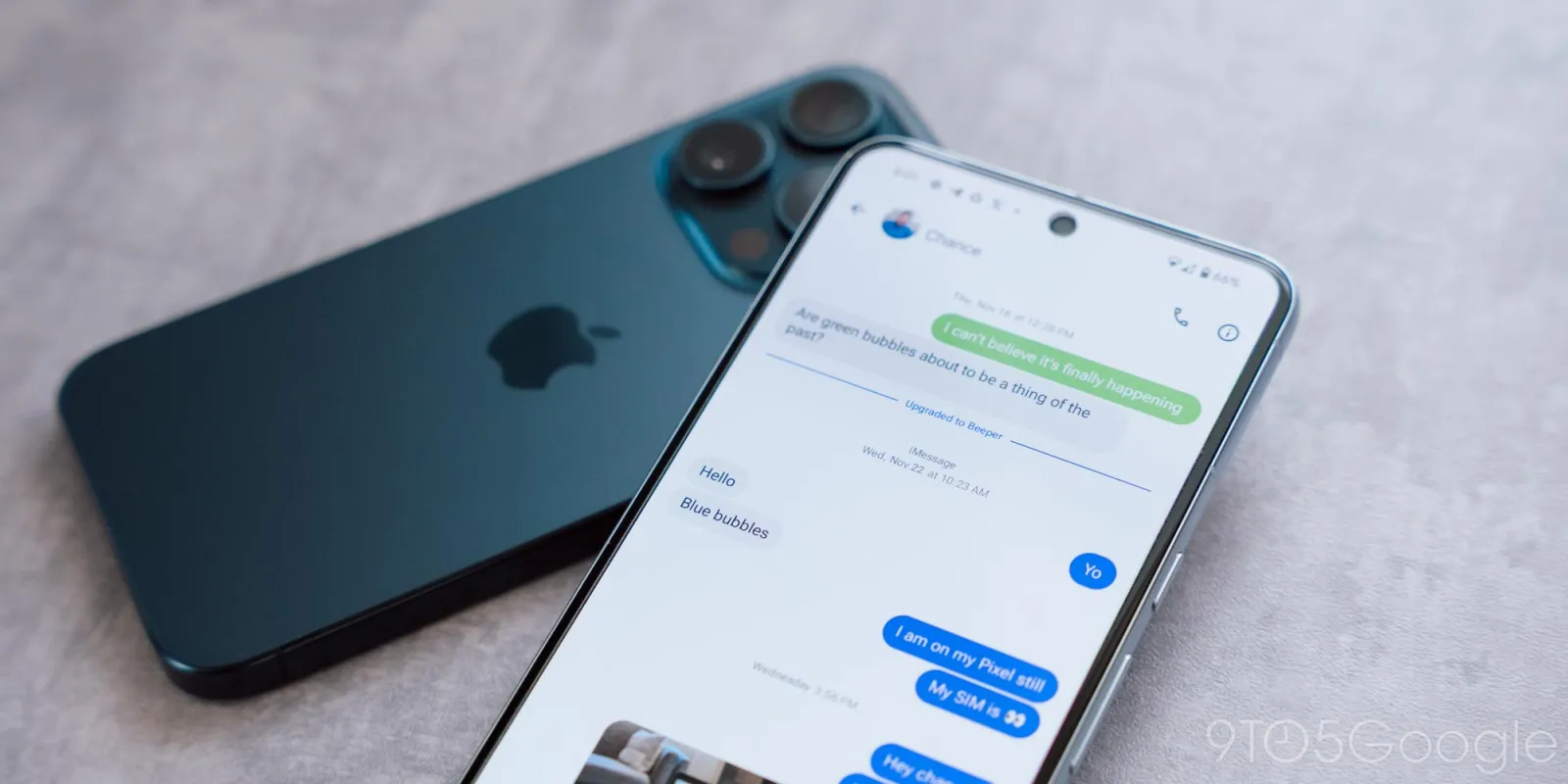
The death of Beeper Mini practically killed the dream of iMessage for Android, and now an FCC commissioner is calling for an investigation into Apple’s actions in pulling the plug.
Beeper Mini, in summary, used a reverse-engineered method of accessing iMessage to give Android users the ability to send “blue bubble” messages from their Android devices, including using the phone number on that device. At launch, it could even work without an Apple ID. But, despite Beeper’s confidence Apple couldn’t kill the system, Apple did just that a few days later. After weeks of back and forth, Beeper threw in the towel with one last bridge, which has also since been disabled as Apple started banning customers’ Macs for using Beeper.
It’s a crazy story, and one that’s gotten a whole lot of attention.
In mid-December, a bi-partisan letter called on the US Department of Justice to investigate whether or not Apple had broken antitrust laws in shutting down Beeper Mini. Now, FCC commissioner Brendan Carr is calling on the FCC to investigate the matter.
Carr spoke on the matter during the State of the Net Conference, with a clip of the request posted to Twitter/X. Carr specifically focuses on whether or not Apple violated Part 14 of FCC rules. As The Verge notes, that section lays out requirements for any “advanced communications service.” Specifically, it refers to requirements for “access to advanced communications services and equipment by people with disabilities.”
While it’s unclear how Apple’s actions may have violated Part 14, the company’s choice to ban users may have crossed a line. One notable quote from the rules says that “no person shall be liable for a violation of the requirements of the rules in this part with respect to advanced communications services or equipment used to provide or access advanced communications services” and specifically calls out that this includes “transient storage the communications made available through the provision of advanced communications services by a third party.”
Another portion of the rules that Carr calls out says that providers, such as Apple, “shall not install network features, functions, or capabilities that impede accessibility or usability” and cites that the colors Apple users for green bubble SMS messages (specifically the low contrast) “makes it difficult for people with low vision or difficulty with seeing from picking up those messages.”
The full near-6-minute discussion by Carr can be viewed below, but the FCC has yet to formally launch any investigation into the matter.
More on Beeper:
- Beeper disables new iMessage connections after Apple banned Macs
- Beeper Mini removed from Play Store after iMessage mess
- Beeper acknowledges ‘unsustainable’ iMessage for Android fight
Follow Ben: Twitter/X, Threads, Bluesky, and Instagram
FTC: We use income earning auto affiliate links. More.



Comments